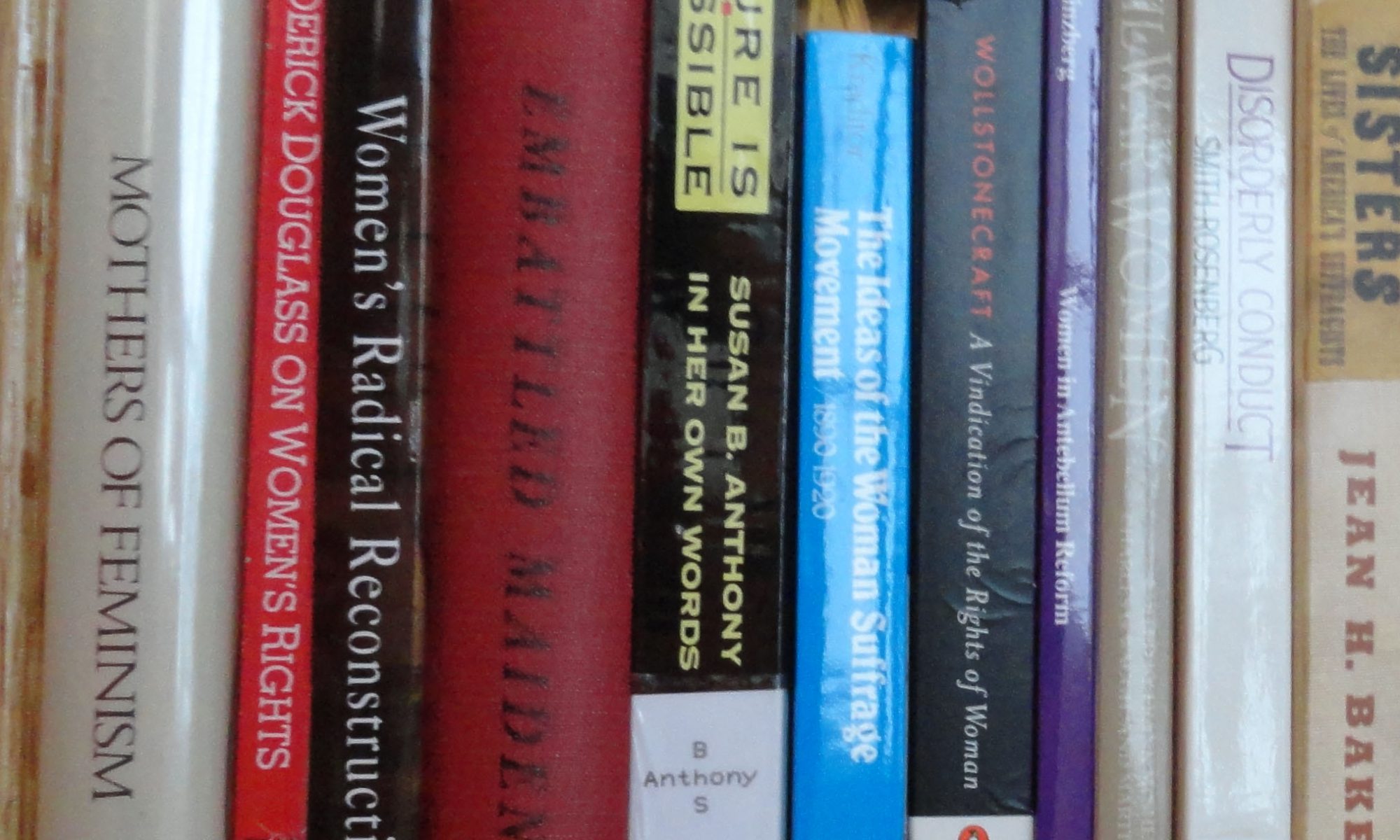 Clara Barton celebrates a birthday this week. She was born on Christmas Day 1821. She was the first woman appointed to government office at the same wage as a man, although her salary was later reduced, and then the job eliminated altogether. During the Civil War she procured food and medicine and carried it to the front herself. Many young soldiers called her the Angel of the Battle Field. After the war she ran the Office for Missing Persons. She also became a vocal advocate for black civil rights and women’s rights. After completing the Lyceum circuit and gaining national fame, she set out for Europe where she worked with the Red Cross. On her return she worked to establish the American Red Cross. In 1907 Clara Barton wrote an autobiography The Story of My Childhood intended for children. She was an extremely quiet shy child but very determined and serious as the following excerpt about working in her father’s weaving mill shows.
Clara Barton celebrates a birthday this week. She was born on Christmas Day 1821. She was the first woman appointed to government office at the same wage as a man, although her salary was later reduced, and then the job eliminated altogether. During the Civil War she procured food and medicine and carried it to the front herself. Many young soldiers called her the Angel of the Battle Field. After the war she ran the Office for Missing Persons. She also became a vocal advocate for black civil rights and women’s rights. After completing the Lyceum circuit and gaining national fame, she set out for Europe where she worked with the Red Cross. On her return she worked to establish the American Red Cross. In 1907 Clara Barton wrote an autobiography The Story of My Childhood intended for children. She was an extremely quiet shy child but very determined and serious as the following excerpt about working in her father’s weaving mill shows.
I finished my first week, commenced my second, and went through with no assistance. On Saturday my webs were cut from the looms, examined and pronounced of first quality, showing great care. I took my proud record home. The next day (Sunday), Mr. Samuel Parsons, with the prudent care that could not trust even the watchman too implicitly, went into the mill by himself, ascending to the picker room in the top story, where the light, oiled wool was piled in great quantities. He casually placed his hand upon it in passing, and observing that it felt warm, he plunged his arm in to lift it. The flames enveloped him. He ran at full speed the length of the building to the bell rope. The fire was there almost before him. He gave two strokes, when the flames drove him from the room; they licked down the air shafts and belt holes, lapping up the oil like so much food, as it was.
The perfection of the magnificent fire departments of the present day was far in the future then. In three hours it was all over, and the new North Oxford Satinet Mills were a smoking pile of rubbish, a thing of the past. No heart was heavier than mine. The strong, energetic brothers knew that rebuilding would commence at once, but I mourned without hope.
If ever there were lost or omitted a well-turned joke or a bit of humor by the various members of the Barton family it was clearly an accident, no such omission being ever intended; and thus it was suggested to me, that, as the fire was manifestly a case of spontaneous combustion, could it have been that I worked so fast that the friction set the mill on fire? That joke on me lasted many years. The mill was rebuilt, as well as several others, some to be burned, some to be sold; but by then I had found other occupations more congenial to the other members of the household, it is to be hoped, if not to me.
Learn more:
Clara Barton The Red Cross in Peace and War
